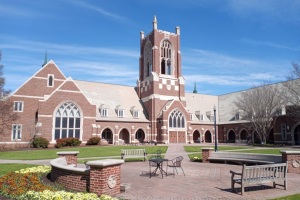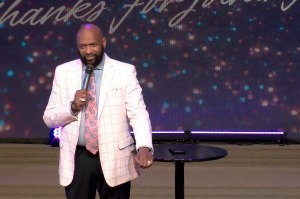Property rights come from God; collectivism is evil
Pursuit of happiness includes both labor and property
The pursuit of Happiness is manifested in each individual’s sovereignty of his body (labor), mind (ideas and beliefs), and property. These are endowed to him by his Creator and are of his own sovereignty; individual rights. That means only God has the authority over each individual in regards to these three features articulated in the Declaration of Independence.
“The founders, of course, did not understand property simply to mean one’s possessions. Property was understood to include the fruit of one’s labor; it included a man’s conscience – the things he believed and thought, and the ideals he held dear (Joseph C. Phillips, July 5, 2010, “Independence and the Right to Private Property.”).” Since only God has authority to give, take, or alter one’s property, government has no domain in this regard, and is bound to the Laws of Nature or Nature’s God; therefore, the establishment of a limited government, which is obligated to protect one’s property – in all forms.
James Madison wrote in a very Lockean comportment in March 1792, in the National Gazette, articulating this sovereignty of one’s property very concisely in an essay he scribed while a congressman in the Virginia legislature. Madison wrote:
This term in its particular application means “that dominion which one man claims and exercises over the external things of the world, in exclusion of every other individual.”
In its larger and juster meaning, it embraces every thing to which a man may attach value and have a right; and which leaves to every one else the like advantage.
[Of one’s property:]
In the former sense, a man’s land, or merchandize, or money is called his property.
[Of one’s mind:]
In the latter sense, a man has a property in his opinion and the free communication of them.
[Of one’s beliefs:]
He has a property of peculiar value in his religious opinions, and in the profession and practice dictated by them.
He has a property very dear to him in the safety and liberty of his person.
[Of one’s body:]
He has an equal property in the free use of his faculties and free choice of the object on which to employ them.
In a word, as a man is said to have a right to his property, he may be equally said to have a property in his rights (James Madison, March 27, 1792, “Property,” in William T. Hutchinson et al., eds., The Papers of James Madison).
Madison continues warning against the oppression of all property rights of large government and articulating the reasoning of a limited government:
Where an excess of power prevails, property of no sort is duly respected. No man is safe in his opinions, his person, his faculties, or his possessions…Government is instituted to protect property of every sort; as well that which lies in the various rights of individuals, as that which the term particularly expresses. This being the end of government, that alone is a just government, which impartially secures to every man, whatever is his own (James Madison, March 27, 1792, “Property,” in William T. Hutchinson et al., eds., The Papers of James Madison).
James Madison also declares that even allowing government into a position of guarding our right to our own property must be “sparingly bestowed on a government.” He also proclaimed that “Conscience is the most sacred of all property…being a natural and unalienable right (James Madison, March 27, 1792, “Property,” in William T. Hutchinson et al., eds., The Papers of James Madison).” It was Claude Frédéric Bastiat writing in his treatise, The Law, who declared, “When does plunder cease, then? When it becomes more burdensome and more dangerous than labor (Claude Frédéric Bastiat, 1848, “The Law.”).” Bastiat’s enlightened truth illustrates that the establishment and upholding of law (under Natural Law, not arbitrary law), creates an environment in which the execution of labor becomes, not only less dangerous, but, in fact, a prosperous motive. The Great Experiment of the United States became the first civilization to establish this at a very significant level. (This statement is not withstanding historical circumstances. A variety of civilizations, like the British Empire, ancient Greeks, and the Romans all had some level of this circumstance which allows a level of prosperity. Even the United States had changes that needed to take place to move this circumstance forward – abolishment of slavery and changes in civil rights. But the historical and Biblical establishment of property rights and freedom of will and thought allowed America to propel prosperity very rapidly to a level unforeseen in the history of the world.)
Madison’s reasoning, like Thomas Jefferson’s, comes from and aligns with John Locke. Locke also establishes the right of inheritance of property, which is an economic continuation of family and is based on scripture. Locke wrote:
Every man is born with a double right: First, A right of freedom to his person, which no other man has a power over, but the free disposal of it lies in himself. Secondly, A right, before any other man, to inherit, with his brethren, his father’s goods…retain a right to the possession of their ancestors, though they consent not freely to the government, whose hard conditions were by force imposed on the possessors of that country (John Locke, 1690, Second Treatise of Government.).
In essence Locke defined that no other person or no government has any right whatsoever to property passed through inheritance. Tragically, America has forgotten and relinquished this sovereign right of property. But according to Locke, descendants have the right to restore their property and throw off unlawful laws imposed upon their inherited property.
Perhaps one of the most eloquent articulations on one’s liberty was written in 1903 by Englishman James Allen in his stirring pamphlet, As a Man Thinketh. Allen contrasts one’s mind as either free or enslaved by one’s own thoughts. It is a spiritual battle between oneself; freedom and life or slavery and death. “Such a man does not understand the simplest rudiments of those principles which are the basis of true prosperity,” opined the eloquent Englishman, “and is not only totally unfitted to rise out of his wretchedness, but is actually attracting to himself a still deeper wretchedness by dwelling in, and acting out, indolent, deceptive, and unmanly thought (James Allen, 1903, As a Man Thinketh.).”
This “wretchedness” mind is exactly where the collective progressives work so diligently to move mankind. It is pure evil and strips one of their God-given freedom which begins in their own thoughts; and why universities have and are working to poison our youths’ minds. Allen noted this stating, “Such a man is altogether unfitted for prosperity, and when he finds himself bankrupt, both as regards reputation and riches, he blames circumstances, not knowing that he is the sole author of his condition (James Allen, 1903, As a Man Thinketh.).” You hear this from any liberal political candidate; it is the antithesis of America and God’s plan for us. But it is the liberal (collective progressive) heart, as it creates a mentality for them to enslave citizens; therefore, it is pure evil.
Jim Huntzinger is the President and Founder of Lean Frontiers, Inc., which develops knowledge and learning communities on the Lean Enterprise for business and industry. With a background and experience in manufacturing and operations, he has also extensively researched the history and development of American manufacturing and also published several books on the lean business model, manufacturing history, and economics.





























